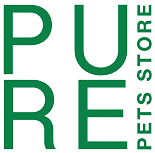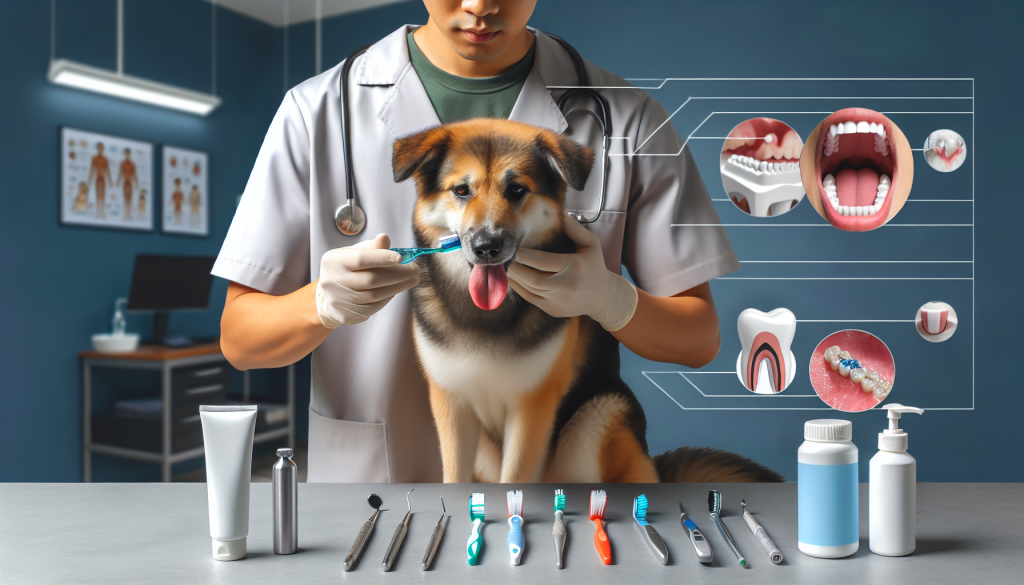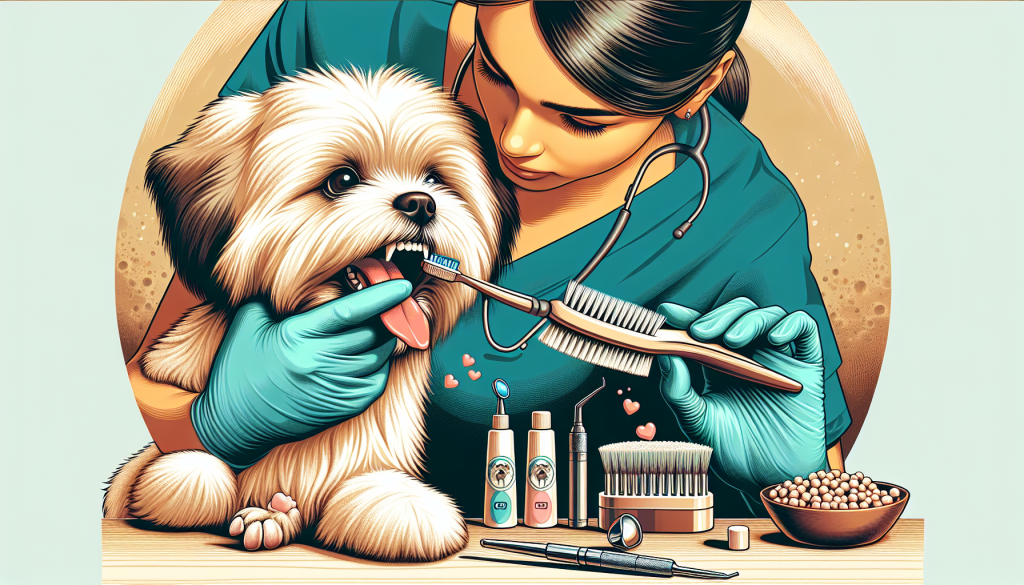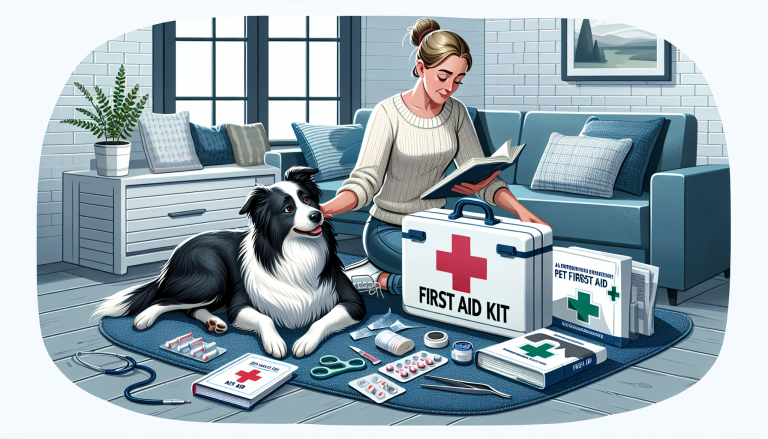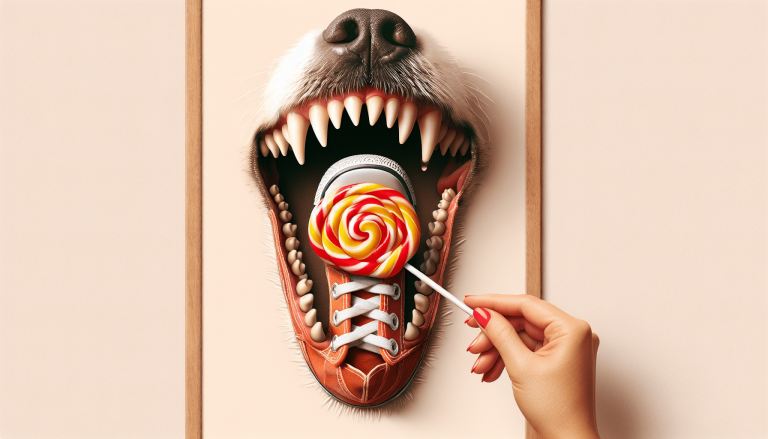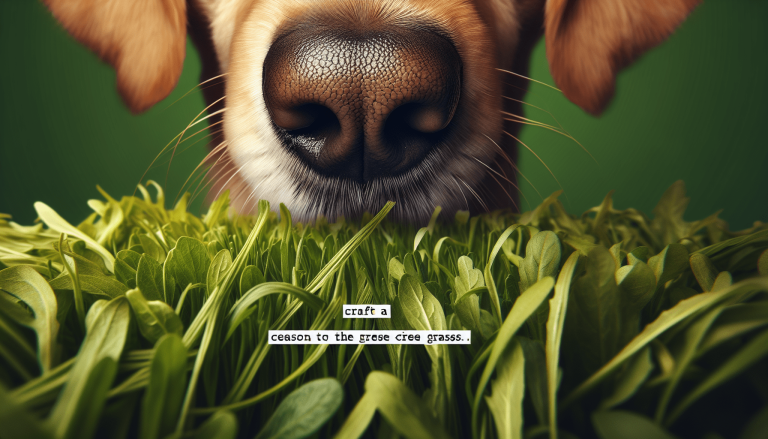In “The Ultimate Guide to Pet Dental Care,” you’ll discover everything you need to know to keep your furry friend’s pearly whites in tip-top shape. From the importance of regular dental care to simple yet effective brushing techniques, this guide is your go-to resource for maintaining your pet’s oral health. With practical tips and expert advice, you’ll learn how to prevent dental issues and ensure your pet’s overall well-being. So, grab a toothbrush and get ready to embark on a journey of pet dental care that will leave your four-legged companion smiling from ear to ear.
Table of Contents
ToggleUnderstanding the Importance of Pet Dental Care
Pets, just like humans, require proper dental care to maintain their overall health. Dental care for pets is often overlooked by owners, but it plays a crucial role in preventing various dental diseases and ensuring your pet’s well-being. By understanding the importance of pet dental care, you can take the necessary steps to keep your furry friend’s teeth and gums healthy.
Why is dental care important for pets?
Good dental care is essential for pets because it has a direct impact on their overall health and quality of life. Maintaining proper oral hygiene can prevent a range of dental issues, including plaque buildup, tartar formation, gum disease, and tooth decay. When these problems are left untreated, they can lead to more serious health complications, such as infections, pain, difficulty eating, and even organ damage.
How does poor dental care affect pets?
Neglecting your pet’s dental care can have severe consequences on their health. Without regular dental care, plaque can accumulate on their teeth, leading to the formation of tartar. Tartar buildup can cause inflammation of the gums, known as gingivitis, which, if left untreated, can progress to periodontal disease. This can lead to infection, tooth loss, and even damage to vital organs like the heart, liver, and kidneys.
Common dental problems in pets
Pets, regardless of their species, can face various dental problems if their oral hygiene is neglected. Some of the most common dental problems in pets include periodontal disease, gingivitis, tooth fractures or abscesses, oral tumors, and malocclusion (misaligned bite). These issues can not only cause discomfort and pain but can also impact their ability to eat and enjoy their daily lives.
Preventive Measures for Pet Dental Care
Preventing dental problems in pets involves regular dental care and maintaining good oral hygiene. By following a few preventive measures, you can ensure the well-being of your pet’s dental health.
Regular teeth brushing
One of the most effective ways to prevent dental problems in pets is by brushing their teeth regularly. Just like humans, pets’ teeth need to be brushed to remove plaque and prevent tartar buildup. Aim to brush your pet’s teeth at least two to three times a week using a pet-specific toothbrush and toothpaste.
Choosing the right toothbrush and toothpaste
When selecting a toothbrush for your pet, look for one with soft bristles and a size appropriate for their mouth. Pet-specific toothpaste is also necessary as human toothpaste contains ingredients that can be harmful to animals. Your veterinarian can recommend a suitable toothpaste that is safe for your pet.
Other oral hygiene products for pets
Besides tooth brushing, there are other oral hygiene products available for pets. These include dental wipes, dental sprays, and chew toys designed to promote dental health. Dental wipes are a convenient alternative to tooth brushing, especially for pets who are resistant to brushing. Dental sprays can help reduce plaque and freshen your pet’s breath. Chew toys, specifically designed to promote dental health, can also help remove plaque and tartar.
Professional dental cleanings
Regular professional dental cleanings are an important part of your pet’s dental care. A veterinarian will remove tartar and plaque buildup from your pet’s teeth during a professional dental cleaning. This deeper cleaning ensures that any potential dental issues are addressed before they worsen.
Importance of regular dental check-ups
Regular dental check-ups by a veterinarian are crucial for early detection and prevention of dental problems. During these check-ups, the vet will examine your pet’s teeth, gums, and overall oral health. Any necessary treatments or recommendations can be made to maintain or improve your pet’s dental well-being.
Signs of Dental Problems in Pets
As a pet owner, it is important to be aware of signs and symptoms that indicate your pet may be experiencing dental problems. By recognizing these signs early on, you can seek prompt veterinary care and prevent further complications.
Halitosis (bad breath)
Persistent bad breath is often an indication of underlying dental issues in pets. While temporary bad breath may be common, if your pet’s breath consistently smells foul, it could be a sign of gum disease or dental decay.
Visible tartar or plaque on teeth
Examine your pet’s teeth regularly for visible tartar or plaque buildup. Yellow or brown discoloration on the teeth is a key sign that dental care is needed.
Bleeding, swollen, or receding gums
Healthy gums should be pink and firm. If you notice any signs of bleeding, swelling, or recession of the gums, it may indicate gum disease or other dental problems.
Difficulty chewing or loss of appetite
If your pet suddenly struggles to eat or shows a decreased appetite, it could be due to dental pain or discomfort. Dental problems can make it painful for pets to chew their food.
Pawing at the mouth
Pets may paw at their mouth if they are experiencing dental discomfort. If you notice your pet frequently pawing at their mouth or showing signs of discomfort while eating, it is essential to have their teeth examined by a veterinarian.
Excessive drooling
While some drooling is normal for pets, excessive drooling can be a sign of oral health problems. If the drooling is accompanied by other symptoms, such as bad breath or swollen gums, it’s advisable to seek veterinary care.
How to Brush Your Pet’s Teeth
Brushing your pet’s teeth may initially seem like a daunting task, but with patience and proper technique, it can become a routine part of your pet’s dental care.
Preparing your pet for teeth brushing
Introduce your pet to the idea of teeth brushing gradually. Start by getting them used to having their mouth touched and their teeth gently handled. Reward your pet with treats or praise during these early stages to associate positive experiences with teeth brushing.
Choosing a suitable toothbrush and toothpaste
Select a toothbrush that is specifically designed for pets. These toothbrushes often have longer handles and softer bristles, making them easier to use in your pet’s mouth. Additionally, choose a toothpaste that is safe for pets and comes in flavors they enjoy, such as poultry or seafood.
Step-by-step guide to brushing your pet’s teeth
-
Familiarize your pet with the toothbrush and toothpaste. Allow them to smell and taste the toothpaste before proceeding.
-
Gently lift your pet’s lips to expose their teeth. Start with a small area of the mouth and gradually work your way to the back.
-
Hold the toothbrush at a 45-degree angle to the teeth. Brush in small, circular motions, focusing on the gum line where plaque tends to accumulate.
-
Pay extra attention to the back teeth, as they are more prone to tartar buildup.
-
Brush for a short duration, gradually increasing the time as your pet becomes more comfortable with the process.
-
Reward your pet with praise and treats after each successful teeth brushing session.
Dealing with resistance and making it a positive experience
It is common for pets to resist teeth brushing initially. If your pet shows signs of resistance, take it slow and be patient. Gradually introduce them to the process, rewarding them for good behavior, and ensuring that the experience remains positive. Consulting with a veterinarian or a professional dog trainer can also provide helpful tips and guidance.
Other Dental Care Options for Pets
While teeth brushing is the gold standard for pet dental care, additional options are available to support your pet’s oral health.
Dental chews and treats
Dental chews and treats can help remove plaque and tartar from your pet’s teeth. Look for products that have been specifically designed to promote dental health. These treats are often formulated to be chewy or have a texture that promotes mechanical cleaning of the teeth.
Water additives
Water additives designed for pets can help maintain oral hygiene. These additives are added to your pet’s water bowl and help freshen their breath and reduce plaque buildup. It is important to follow the manufacturer’s instructions and consult with your veterinarian before using any water additives.
Oral rinses and gels
Oral rinses and gels can be used as an additional means of promoting dental health in pets. These products are applied directly to your pet’s teeth and gums, helping to reduce plaque, freshen breath, and maintain healthy gums. Your veterinarian can recommend suitable rinse or gel products for your pet.
Dental diets
Special dental diets are available for pets, particularly for cats and dogs. These diets have a specific texture and formulation that helps reduce plaque and tartar buildup. Dental diets can be an effective way to maintain your pet’s oral health, but it is essential to consult with a veterinarian to ensure the diet is appropriate for your pet’s specific needs.
Dental toys
Certain toys, such as dental chew toys or customized tooth-cleaning toys, can help remove plaque and tartar while providing entertainment for your pet. These toys are designed with textured surfaces or ridges that aid in the mechanical cleaning of teeth.
Understanding Professional Dental Cleanings for Pets
While regular at-home care is crucial, professional dental cleanings by a veterinarian are essential for maintaining your pet’s dental health.
What happens during a professional dental cleaning?
During a professional dental cleaning, your pet will be placed under anesthesia to ensure their comfort and safety. The veterinarian will thoroughly examine the teeth, gums, and oral cavity. Tartar and plaque buildup will be removed using specialized dental instruments. The teeth will then be polished to smooth any surface irregularities that may attract bacteria and cause future plaque buildup.
Anesthesia and safety considerations
The use of anesthesia during professional dental cleanings is necessary to ensure your pet remains still, allowing the veterinarian to perform a thorough cleaning without causing them discomfort. Prior to the cleaning, the veterinarian will assess your pet’s overall health and determine the appropriate anesthesia protocol. Safety measures will be taken to monitor your pet’s vital signs throughout the procedure.
Post-cleaning care and maintenance
After a professional dental cleaning, your veterinarian will provide you with instructions for proper post-cleaning care and maintenance. This may involve recommendations for at-home dental care, such as brushing, dental chews, or specific products to use. Following these instructions will help maintain the benefits of the professional cleaning and prevent future dental problems.
Common Dental Problems in Pets
Understanding the common dental problems that pets can experience can help you recognize and address potential issues promptly.
Periodontal disease
Periodontal disease is one of the most common dental problems in pets. It is characterized by inflammation of the gums and can progress to involve the surrounding tissues and tooth sockets. Regular dental cleanings and proper oral hygiene are essential in preventing and managing periodontal disease.
Gingivitis
Gingivitis refers to the inflammation of the gums, often caused by poor oral hygiene. It is an early sign of potential dental problems and, if left untreated, can progress to more severe periodontal disease.
Tooth fractures or abscesses
Pets can experience tooth fractures or abscesses due to trauma or untreated tooth decay. These conditions can cause significant pain and may require dental procedures such as extractions or root canals.
Oral tumors
Oral tumors can occur in pets, and early detection is essential for successful treatment. Regular dental check-ups by a veterinarian can help identify potential tumors or abnormalities in the oral cavity.
Malocclusion (misaligned bite)
Pets with malocclusion may have teeth that do not align properly, potentially causing pain, difficulty eating, and increased risk of dental problems. Depending on the severity, treatment options may include orthodontic intervention or tooth extraction.
Dental Care Tips for Different Types of Pets
Different types of pets have different dental care needs. Here are some specific tips to keep their teeth and gums healthy:
Dogs
Regular teeth brushing is crucial for dogs. Start by introducing them to tooth brushing at a young age to establish a routine. Dental chews and treats specially designed for dogs can also aid in maintaining their dental health.
Cats
While cats may be more resistant to teeth brushing, it is still important to establish a dental care routine. Introduce tooth brushing gradually and provide dental treats or toys to help promote oral hygiene.
Small mammals (rabbits, guinea pigs, etc.)
Small mammals can also benefit from dental care. Provide them with chew toys or sticks made of safe, untreated wood to help wear down their continuously growing teeth.
Birds
Birds require regular beak maintenance, which helps keep their beaks healthy and their dental health in check. Providing them with suitable toys or materials to chew on helps fulfill this need.
Reptiles
Reptiles, such as turtles and lizards, may have unique dental structures and requirements. Consult with a veterinarian familiar with reptiles for guidance on proper dental care practices for your specific pet.
Senior Pet Dental Care
As pets age, their dental care needs may change. Senior pets may be more susceptible to dental issues due to age-related factors. Consider the following when caring for your senior pet’s dental health:
Dental care considerations for aging pets
Senior pets may have more fragile teeth or weakened gums, making oral care particularly important. Regular dental check-ups and professional cleanings can help address any new or worsening dental problems.
Managing dental issues in older pets
If your senior pet already has dental problems, work closely with your veterinarian to create a plan for managing their oral health. This may involve more frequent dental cleanings and potential treatments or extractions to alleviate pain or discomfort.
Choosing the Right Veterinarian for Pet Dental Care
Finding the right veterinarian to address your pet’s dental care needs is crucial for their overall health and well-being. Consider the following factors when selecting a veterinarian:
Qualities to look for in a veterinarian
Look for a veterinarian who has experience and expertise in dental care for pets. They should demonstrate a genuine concern for your pet’s dental health and offer comprehensive dental services.
Questions to ask about dental care services
When choosing a veterinarian for pet dental care, ask about the services they provide. Inquire whether they offer routine dental check-ups, professional cleanings, and extractions if necessary. Additionally, ask about their approach to anesthesia and safety during dental procedures.
Importance of regular veterinary care
Regular veterinary care is essential not only for dental health but for your pet’s overall well-being. Veterinary check-ups allow for early detection and prevention of dental problems, ensuring that your pet’s oral health remains in optimal condition.
In conclusion, understanding the importance of pet dental care is crucial for every pet owner. By implementing preventive measures, recognizing signs of dental problems, and providing proper dental care, you can contribute to your pet’s overall health and well-being. Regular teeth brushing, professional dental cleanings, and regular veterinary check-ups are essential components of a comprehensive dental care routine for your beloved pet. Remember to consult with your veterinarian for guidance specific to your pet’s dental needs, and always prioritize their oral health to ensure a happy and healthy life for your furry friend.
